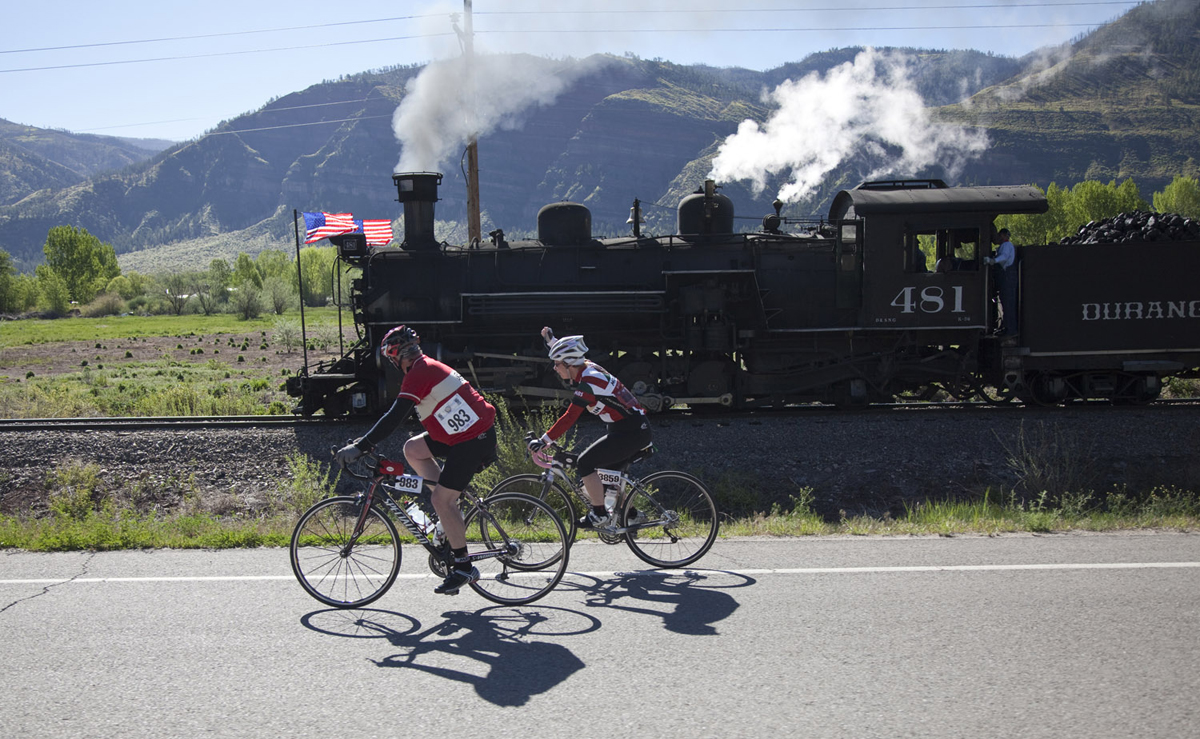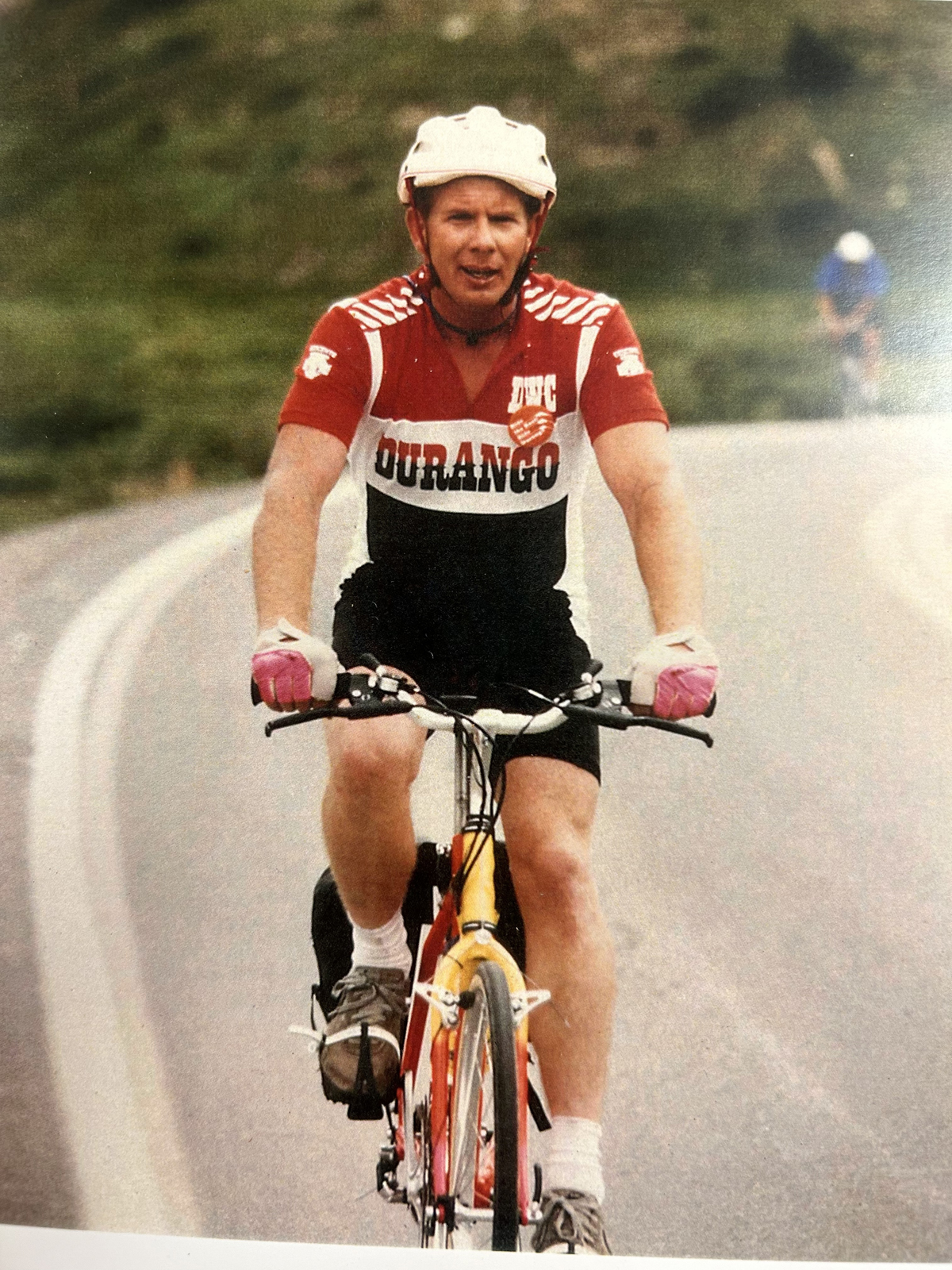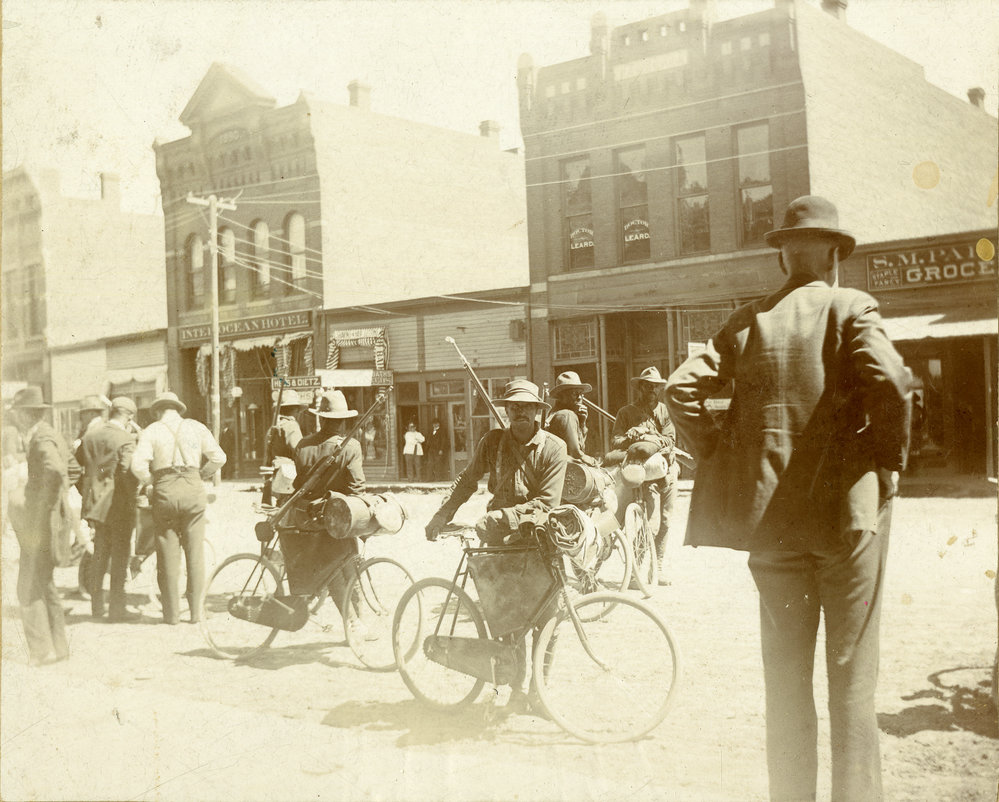By Dave Marston — If you don’t know much about the Iron Horse bike race that begins in the town of Durango in southwestern Colorado, know that it is brutal, pitting cyclists against a narrow-gauge train that takes an easy route up a valley.
Riders, though, must climb a curvy route of 47 miles over two passes, both more than 10,000 feet high, as the road threads its way through the rugged San Juan Mountains.
Winners finish about two and a half hours, the train chugs in an hour later.
An enduring race legacy belongs to one man, Ed Zink, who died five years ago. He spent decades running the race or being involved through its nonprofit board from 1972-2019. Though the race is now 52 years old, attracts 3,000 riders and has a big budget and staff, its beginnings were entirely local.

In 1971, two brothers named Mayer thought it would be fun to pit bicycles against the local train, where Jim Mayer worked as a brakeman for the Durango and Silverton Railroad. Jim’s brother, Tom, bet his brother he could beat the train riding his bicycle. He did just that, winning a candy bar.
The next year the brothers teamed up with Zink, a born organizer, to start what became an annual race during the Memorial Day weekend.
For the next 30 years, said Patty Zink, the race was a bootstrap operation. Her husband “and his kids and employees at our Mountain Bike Specialists store led the volunteering, food and cleanup. It’s fabulous that it’s thrived and now is the second oldest bike race in the United States.”

“Zink worked so hard organizing the race, he didn’t get to ride in it until 2006 when he was 59,” said Gaige Sippy, who took over as director in 2007, until 2022.
Sippy said to this day, there has always been at least one Zink family member and often 10 volunteers helping out along the route of the race,
More recently, the race has featured the remarkable Mara Abbott, an Olympian biker who’s also the winningest Iron Horse rider. She’s beaten thousands of men six times.
In a TEDx Talk, she recounted almost winning an Olympic race until running out of gas with just a few hundred yards to the finish. At that point, she said, three cyclists passed her, leaving her “with the privilege of a broken heart.”
Sippy credits Abbott and local Durango legend Ned Overend, who owns the second most wins, with inspiring legions of riders to take on the mountain passes.
But before Abbott and Overend and the race’s national reputation, there was Zink. He kept the race going until it became an institution that helped define Durango, a sports-loving town.
Many locals recall Zink as a man who loved to get good things going. An example was his founding of the easier Quarter Horse Bike Race, where riders only grind out 25 miles uphill to the Purgatory ski area. Once the shorter race was established, Zink let someone else lead the event.
Zink was also early to the idea of mountain biking having its own home. Sippy recalls him saying, “We’re always trying to fit in, riding on trails sharing with other folks. It would be great if cycling had its own stadium.”
Back in 1990, it was because of Zink’s work that the Mountain Bike World Championships came to Durango. It was early days for mountain biking—just a decade after riders on homemade Klunker bikes started traversing old mining trails.
Marc Katz, founder of a big park for mountain bikes and other sports that’s underway close to town, said he deeply feels Zink’s loss. “I had many chats with Ed Zink along the way. I am sad he isn’t around to talk with now that we’re getting this thing done.”
[Editor’s Note: Ed Zink passed away in 2019. In addition to the Iron Horse, he was the founder of Durango’s Mountain Bike Specialists bike shop.]








